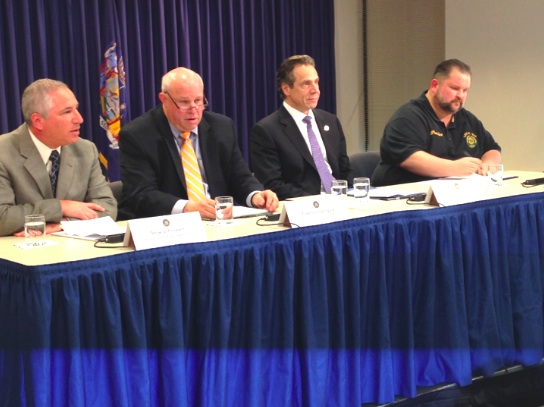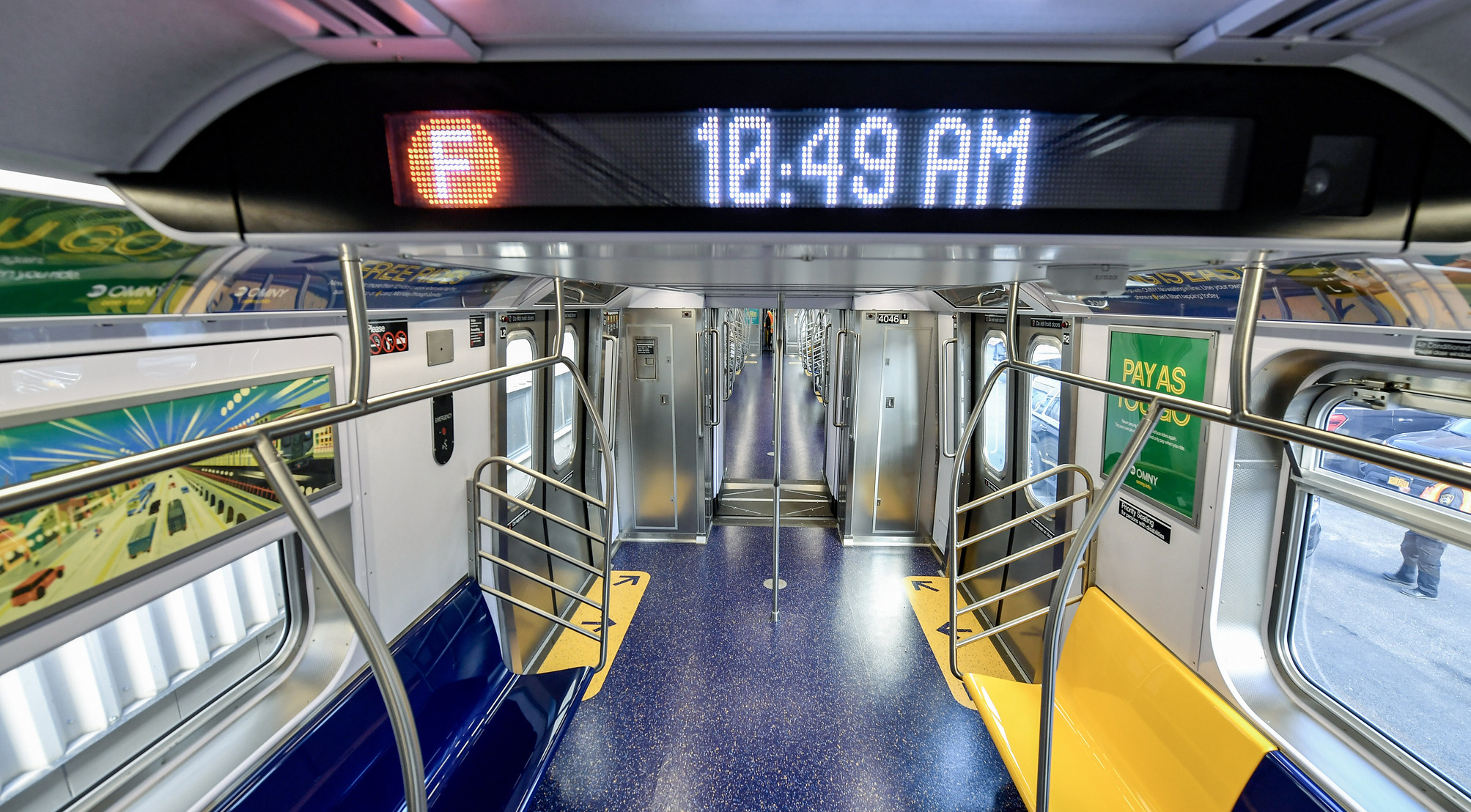The MTA’s financial situation became much murkier yesterday as Governor Cuomo announced that retroactive raises will be part of a labor agreement between the transit authority and the Transport Workers Union.

Up until yesterday’s announcement, MTA leadership had insisted that the authority’s financial health depended on “three years of net-zero wage growth.” Keeping labor costs flat was the key assumption behind the MTA’s financial plan.
Now the validity of the MTA’s financial plan is in doubt.
TWU members will receive raises of one percent for the first two years and 2 percent in each of the final three years. Since employees had been working without a contract for two years, the first two years represent retroactive raises.
MTA chairman Tom Prendergast insisted that the wage deal was “within the financial plan,” and that no fare hikes or service cuts would be necessary. But it is difficult to reconcile Prendergast’s claim with the MTA’s publicly available financial information.
The wage increases will likely cost the MTA between $200 million and $300 million a year, an amount that exceeds the agency’s projected cash balance for 2014 and beyond. The MTA financial plan projected a $64 million surplus by the end of 2014, falling to $6 million by 2015 and a $255 million deficit by 2017 [PDF].
So how will the MTA balance its budget without fare hikes or service cuts? Should we assume that the MTA leadership and Governor Cuomo have a plan?
One possibility is that these wage increases will be at least partially offset by other labor-related savings. Yesterday’s agreement included higher employee contributions to health care, rising from 1.5 percent to 2 percent. But this is likely to result in less than $10 million in annual savings. Other potential sources of labor-related savings, such as work rule changes, were not mentioned.
But we don’t have the final details of the labor agreement. As Gene Russianoff of the Straphangers Campaign said in a statement, “The devil is always in the details... we reserve final judgment until we study the management-labor contract.” Perhaps other cost-saving measures will be announced in the coming weeks.
Other cost savings, not related to labor, will be difficult to achieve since the MTA has been aggressively cutting costs over the past four years. Plus, the MTA financial plan already accounted for “unidentified” efficiencies that would result in $21 million in savings in 2015, climbing to $56 million in 2017. The MTA would need to find even more savings beyond this “unidentified” target in order to balance its books.
Another possibility is that the tax revenue that is used to support transit will increase enough in coming years to pay for these higher labor costs. But if this is the case, why isn’t it reflected in the MTA’s most current financial plan?
Perhaps Governor Cuomo will increase state aid to the MTA in 2014 and beyond. While possible, Cuomo has recently been more inclined to take money from the MTA, including $30 million during the most recent budget cycle.
In any case, this is Governor Cuomo’s responsibility now. He took the opportunity to hold a press conference and tout his skills as a fiscal manager.
This isn’t to say that the Governor is wrong for granting raises to MTA employees, but rather that he was wrong for failing to plan for these raises.
He made the decision to press the MTA board to lower tolls on the Verrazano Bridge, costing the MTA $7 million. He diverted $30 million in MTA funds to cover other state responsibilities. At the time, there was grumbling that these decisions would weaken the state’s bargaining position with the TWU.
So, what’s the plan now, Governor?





